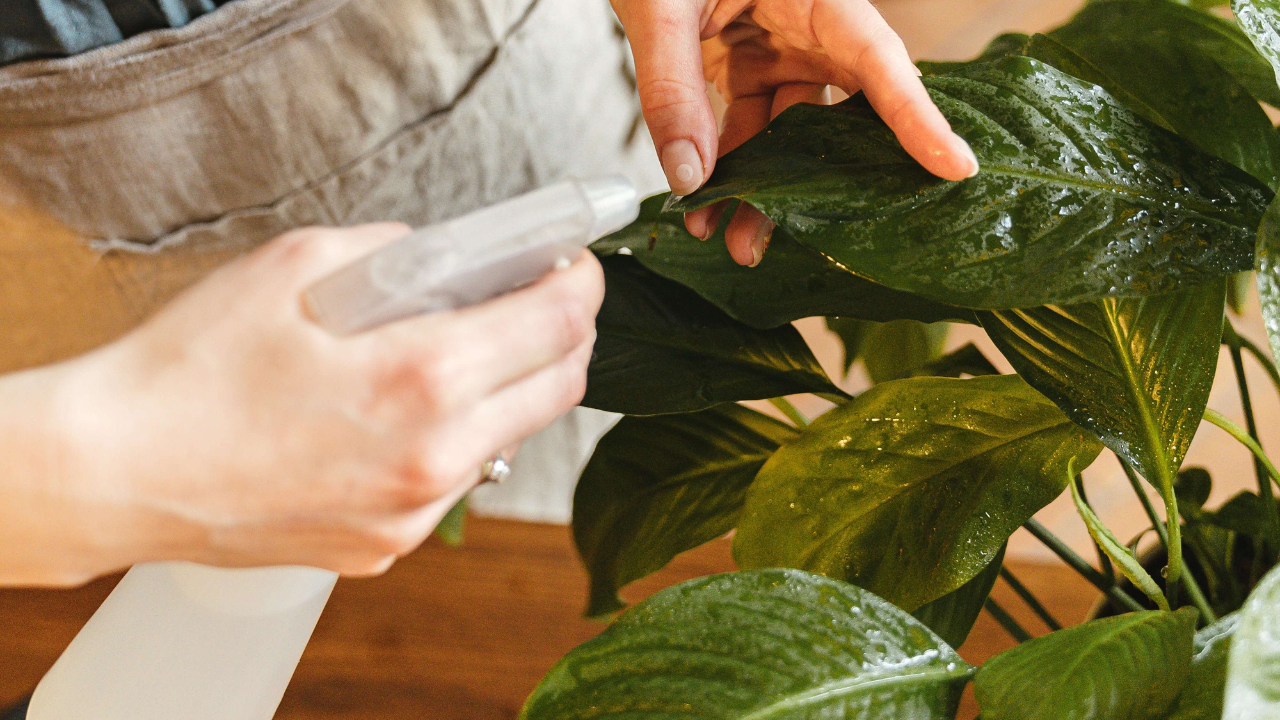Maintaining the vibrancy and health of your indoor plants goes beyond regular watering and sunlight exposure. As anyone returning from an extended absence or a holiday trip can attest, dust and debris can accumulate on the leaves, hindering the plant’s ability to thrive.
In this guide, we’ll explore the importance of cleaning your houseplants and provide a step-by-step approach to keeping them in optimal condition.
The significance of clean houseplants
A clean plant is a thriving plant, capable of optimal photosynthesis, making it more resilient against diseases and pests. Regularly cleaning your houseplants not only contributes to their overall health but also minimises the effort required for long-term maintenance, creating a healthier indoor environment.
Determining cleaning frequency
The frequency of cleaning your houseplants depends on the dust levels in your home environment. Areas with dirt roads, ongoing construction, or high wind may require more frequent cleaning, possibly every other week. An easy test to determine if your plant needs cleaning is to rub your fingers on the leaves. If dust is noticeable and can’t be easily removed, it’s time for a cleaning session.

Image credit: Pexels
Caution against leaf shine products
While leaf shine products may seem like a quick fix for cleaner, more attractive plants, they can negatively impact a plant’s ability to breathe and photosynthesize. It’s advisable to skip these products and opt for manual cleaning methods.
Materials and tools needed
- Spray bottle
- Sprayer nozzle or hose
- Bucket
- Damp cloth
- Soft duster or brush
- Stiff brush
- Plastic wrap
- Dish detergent
- Household bleach
Cleaning Methods:
Wash the plant with a spray nozzle
For medium to large houseplants, move them to the sink, shower, or outdoors and gently hose them off with a sprayer nozzle. Ensure the water pressure is low, and the water is lukewarm to prevent leaf damage.
Mist with a spray bottle
For more delicate plants like succulents, cacti, and bonsais, use a spray bottle for a gentle misting.
Dunk the plant in water
Submerge smaller plants into a bucket of lukewarm water, holding the base at soil level. Optionally, wrap plastic around the base to contain soil. Let the plants drip dry before returning them to their positions.
Wipe the leaves
For large plants that can’t be moved, wipe the leaves with a damp cloth. Use a soft duster subsequently to prevent dust buildup.
Use a soft brush
For plants with sticky or fuzzy leaves, or those averse to getting wet, use a soft brush to gently remove dust.
Tips for maintaining tidy houseplants
- During cleaning, remove dead or yellowing leaves by hand or with clean sheers.
- Prune-browned leaf tips following the natural contour of the leaves for a more natural appearance.
- For pots, remove salt or mineral buildup by cleaning with a diluted bleach solution. Periodically flush the soil with water to prevent future buildup.
ALSO SEE:
Microgreens magic: a step-by-step guide to growing nutrient-packed greens
Feature image: Pexels
Originally published in Garden&Home Magazine.

